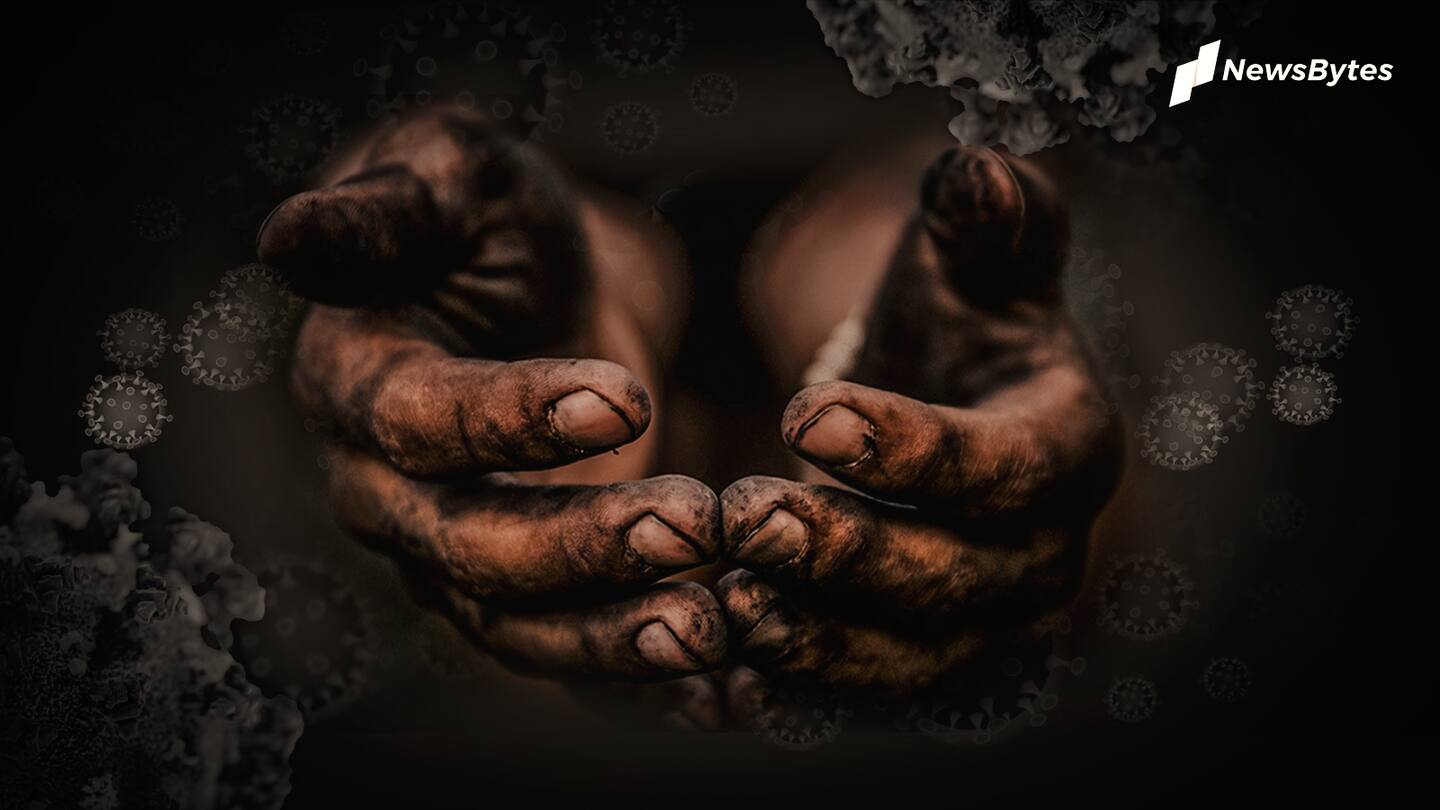
Coronavirus aftermath: 1.1 billion could become extremely poor, globally
What's the story
The economic repercussions of coronavirus, which has already taken 423,844 lives globally, are mountainous. Thanks to lockdowns, enforced to break the transmission chain, even the richest countries are staring at oblivion.
And now studies have suggested that in the post-coronavirus world, more people will be pushed into extreme poverty. Child labor will also witness a surge, after nearly two decades.
Here are more details.
Prediction
Number of extreme poor to rise to 1.1 billion
A report published on Friday by the UNU-WIDER, a part of the United Nations' University, said an extra 395 million people would be pushed into extreme poverty.
With this, the total number of people living on less than $1.90/day (the benchmark the World Bank uses to define extreme poverty) would swell to a staggering 1.1 billion.
Those living under $5.50/day fall in higher poverty lines.
Suggestion
Study's author urged countries to take substantial steps at earliest
One of the authors, Andy Sumner, asked countries to take concrete steps quickly.
"The outlook for the world's poorest looks grim unless governments do more and make up the daily loss of income the poor face. The result is progress on poverty reduction could be set back 20-30 years and making the UN goal of ending poverty look like a pipe dream," he said.
Do you know?
South Asia would suffer the most
Experts also predicted the regions which would be worst-hit by poverty in the aftermath of the pandemic. Buoyed by largely-populated India, South Asia could see the biggest surge in extreme poverty. One-third of the surge could come from Sub-Saharan Africa.
World Bank
Earlier, World Bank predicted 60 million would become extremely poor
Earlier this month, the World Bank predicted nearly 60 million people would be pushed to extreme poverty in 2020 due to coronavirus. Hence, countries were suggested to not only concentrate on the health problem but also think of long-term comprehensive measures to help the downtrodden.
The apex bank noted that the economic shutdowns dealt a major blow to countries, especially poorer ones.
Quote
Policy changes will go a long way, explained World Bank
"Policy choices made today - including greater debt transparency to invite new investment, faster advances in digital connectivity, and a major expansion of cash safety nets for the poor - will help limit the damage and build a stronger recovery," Group President David Malpass asserted.
Child labor
Like extreme poverty, child labor will see a spike too
Separately, the UN's child care wing, UNICEF, and the International Labour Organization (ILO) addressed media together on Friday saying child labor will see a rise too, demolishing all the progress of the last two decades.
Globally, the number of children stuck in labor declined by 94 million since 2000.
"The COVID-19 pandemic poses very real risks of backtracking," the bodies said.
Statement
With families, livelihoods destroyed, children could go to work
The agencies explained that the rise in poverty was directly proportional to child labor. In some countries, a 1% rise in poverty, leads to a 0.7% increase in child labor.
"As the pandemic wreaks havoc on family incomes, without support, many could resort to child labor," ILO chief Guy Ryder said. Those who are already working would be forced to put in longer hours.
Details
Children will be forced to become breadwinners if parents die
In the unfortunate scenario of the death of one or both parents due to coronavirus, kids would be forced to step up as the breadwinners, the agencies added. Girls could be exploited in agriculture and domestic work.
Further, this labor problem has been emboldened by the temporary closure of schools.
Over 1 billion pupils across 130 countries have been affected so far, they added.
Suggestion
Have to provide tools to children and families: UNICEF
Between 2012 and 2016, nearly 152 million kids were forced into work, the ILO said in 2017.
UNICEF Chief Henrietta Fore said in the post-coronavirus world, countries have to ensure children and families have tools "to weather similar storms in the future".
"Quality education, social protection services, and better economic opportunities can be game-changers," her statement read.